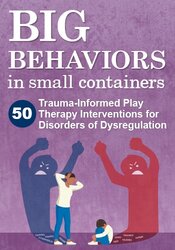Enrol in an online course today for flexible, self-paced learning—no fixed schedule required. Plus, enjoy lifetime access to course materials for convenient revisiting.
Sex Addiction 3/7: Paraphilia

In case not everyone is familiar with the word, paraphilia is a non-normative pattern of sexual behaviour. Technically, the word means ‘alongside love’. We might include BDSM, sexual cross-dressing, extensive fetish involvement, and the use of transsexual sex workers. However, human sexual behaviour is very diverse, and the status of normative and non-normative changes over time. For example, masturbation was taboo in the 19th Century, but is accepted by most people now as a normal part of human life.
Let me give an example of paraphilia. Charles (not his real name) has an addictive process with a paraphilic end product. He is addicted to sex that degrades. Every so often, he pays women to shit on him. I cannot say it any other way – a euphemism would not convey the true meaning of the behaviour. The set up for this behaviour is easy to see. Charles had a terrible speech impairment, which meant that he was ridiculed day after day all through his school years. When he got to university, he could not even say his name – he had to write it down. It is easy to see how the ‘I am shit’ mechanism was set up in childhood. Incidentally, he is a lovely man.
Origins of paraphilia
Robert Stoller and John Money, as well as other authorities, agree that the male sexual template is set up between seven and nine years old. It is created by events in the family and the environment. Usually it is directly related to traumatic experiences and not to proto-sexual experiences. In their view, these non-normative sexual patterns are reversals of trauma, which are endowed with erotic content. Thus, trauma is reversed. An erotic victory is achieved. According to the Opponent Process Theory of Acquired Motivation, the brain automatically reverses the trauma and sexualises it. In my clinical work, this has always been borne out.
Working with paraphilia
In so far as the behaviour is part of an addictive pattern, it is possible to teach interventions that will give the individual the capacity to manage, limit or stop the behaviour. However, there is another problem. A paraphilia is very difficult to remove. Some authorities claim that it can be changed by aversion therapy and other authorities say that it cannot be changed.
Those who propose aversion therapy are not suggesting electric shocks but rather olfactory aversion, linking the paraphilic interest with a noxious odour. I have tried this twice, linking the paraphilia with smelling salts. In neither case did it work. I only did this as a last resort for one man who would become suicidal after engaging in the paraphilia, and with another man who would expose himself and masturbate on public transportation. It was just to protect the public and to keep the second man out of prison that I suggested that technique. He returned to prison.
My final point, in today’s blog, is to consider the oppression of sexual minorities as acts of profound injustice. Rubin points out that every society tends to create a hierarchy of
acceptable sexual conduct. In our society, at the top of the hiereachy is heterosexual marriage. Masturbation still has an ambiguous place further down the scale, while transsexualism, polyamory and sex work are at the bottom of what society considers acceptable. Given that a paraphilia is not chosen, this seems, indeed, to be an act of erotic injustice – unless, of course, the act is coercive or involves those not capable of giving consent for reasons of age or incapacity.
Next week we will look at shame – a principal driver of compulsive sexual behaviour.

















